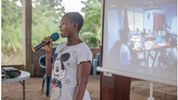Good analogy here between medical professionals and those in industry, finance, commerce and government.
Tools, such as AI, free people to make the important decisions that require human cognition, experience, empathy and intuition.
To reach that goal requires more than technology but does require organisations to become more like tech companies. See BCG paper "It takes more than technology to be a technology company" .
Back to AI; McKinsey finds that most organisations fail to scale AI across the enterprise. That is because far more than technology is involved. McKinsey proposes 9 critical success steps.
Aligning on Strategy
- Obtaining a strong and unified commitment from all levels management
- Increasing analytics investments with a focus on the last mile (embedded analytics)
Building the right foundations of data, technology and people
- Developing a clear data strategy and & strong data governance
- Using sophisticated analytics methodologies
- Possessing analytics expertise and talent strategy
- Creating cross-functional, collaborative and agile teams
Conquering the last mile by embedding analytics into decision making and processes
- Prioritising top decision-making processes
- Establishing clear decision-making rights and accountability
- Empowering the front lines to make analytics driven decisions
If doctors are to adopt the best tools such as AI they need healthcare organisations to apply these steps. As do other professionals and sectors from airlines through insurance to Waste Management.
.
It’s true that a doctor’s eyes and hands are slower, less precise, and more biased than modern machines and algorithms. But these technologies can count only what they have been programmed to count: human perception is not so constrained. Our distractible, rebellious, infinitely curious eyes and hands decide moment-by-moment what deserves attention. While this leeway can lead us astray, with the best of training and judgment, it can also lead us to the as of yet undiscovered phenomena that no existing technology knows to look for. My profession and other increasingly automated fields would do better to focus on finding new answers than on fettering old algorithms.
 unknownx500
unknownx500









